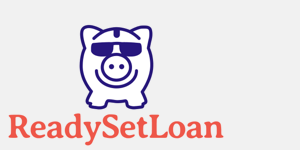What are the PROS of being an FHA Approved Condominium?
- FHA condo approval dramatically increases the pool of potential buyers
Statistics show that approximately 60% of new home-buyers intend to use an FHA Loan. If your community does not have FHA condo approval, you potentially limit the buying pool to only 40% of home-buyers.
NOTE: These are “regular” buyers – an FHA loan is not associated with low-income HUD programs, such as Section 8. In some counties, an FHA insured loan can reach amounts of $800,000.00 or more. Since the recession, most American buyers are using FHA insured loans, and this will be the trend for years to come.
- Increased Home Value
FHA approved Condos have a larger pool of prospective buyers, therefore increasing competition and demand for the product. This can result in higher purchase prices and an increase in market value. This will ultimately increase the value of all units throughout the community.
- Reverse Mortgages
FHA Certification is necessary to get a Reverse Mortgage (HECM). Many owners use these types of loans as a financial planning tool and cannot stay in their units without this type of financing. Without FHA condo approval, unit owners can not obtain a reverse mortgage.
- FHA Loans are Assumable
This means that in the future, an FHA Loan can be assumed (including the interest rate) by a new buyer. With interest rates at an all-time low, this can be a very valuable asset to an HOA community.
- Marketability
Realtors are more likely to bring their clients to FHA and VA Approved communities. Units with these approvals are easier to sell and most often sell for higher prices than similar condo associations that are not approved.
- Awareness
Going through the FHA condo approval process gives your Homeowners the sense that you as a Board care about the community and want it to thrive. By avoiding the approval process, it will hamper unit owners when they go to sell, refinance, or reverse their units.
What are the cons of FHA Condo Approval?
At this time, experts agree that there are no “cons” to being FHA Certified. However there are sever misconceptions about FHA Condo Approval. Remember, chances are, your community was certified when it was first developed. Most communities in the US are currently seeking FHA eligibility.
Misconceptions regarding FHA Condo Approval:
- FHA and VA are lenders. – FALSE
The FHA and VA provide mortgage insurance to banks, credit unions, and other lenders. In turn, these lenders make loans that meet insurance standards. If the loan defaults, the FHA or VA reimburses the lenders for a portion. They do not “approve buyers.” This is still done by the lender/bank, just like conventional loans.
To use an FHA or VA Insured Mortgage, there is a minimum set of standards that must be met by a potential mortgagee. However, each lender enforces additional requirements based on their own best practice. These requirements include mortgage score, credit history, bankruptcy and foreclosure/short sale history, and employment verification.
- Being FHA Certified will bring in “low-income” buyers – FALSE
This is false. FHA Condo approval is completely unrelated to affordable housing programs. The FHA can insure loans upwards of $800,000.00 in some areas. Since the recession, most American buyers are using FHA insured loans, and this will be the trend for years to come.
- FHA and Loans have lower down payments, so they are more likely to default – FALSE
No. There are many different factors that come into play during a foreclosure. If down payments were the key to borrower default, banks and lenders would be able to predict all foreclosures. Many conventional lenders allow down payments equally as low as FHA.
- If we become FHA Certified, the FHA will have control over our community – FALSE
The FHA will not have any “control” over the governing of the community. An FHA certified community has no obligation to maintain its certification, and the FHA does not monitor the association. When a condominium is placed on the FHA connection list, the FHA is simply certifying that the Association meets requirements set forth in the FHA Handbook.
- FHA Loans caused the housing crisis – FALSE
No. The FHA does not lend money. It insures loans that meet their standards. Sub-prime loans are what caused the mortgage crisis. FHA Insured loans are a big part of how the housing market came back.
- The guidelines are too strict and it’s cost prohibitive – FALSE
Well-managed and financially stable communities have no trouble becoming FHA approved. The cost has dropped dramatically since 2010. When the guidelines initially changed, Attorneys were charging upwards of $5,000 to review the documents. FHA Submission companies like FHA Review are able to streamline the process and charge significantly less.
-Written by Natalie Stewart, FHA Review, INC http://www.fhareview.com








 A defense owners can raise if the Board claims the owner has violated the rules is “selective enforcement,” meaning the Board arbitrarily picks on some violators and not others. In addition, owners oftentimes like to rely on approval given by one board member, taking that as “Board approval” of the owner’s actions. The case below tackles both of these issues, in the context of a dispute over an owner’s installation of hard-surface flooring.
A defense owners can raise if the Board claims the owner has violated the rules is “selective enforcement,” meaning the Board arbitrarily picks on some violators and not others. In addition, owners oftentimes like to rely on approval given by one board member, taking that as “Board approval” of the owner’s actions. The case below tackles both of these issues, in the context of a dispute over an owner’s installation of hard-surface flooring. Between October and December each year, starter home inventory in the US gets a 7% boost, according to new data from Trulia.
Between October and December each year, starter home inventory in the US gets a 7% boost, according to new data from Trulia.





